 June 2023 in “JAAD international”
June 2023 in “JAAD international” Patients with skin of color are more likely to use supplements for hair loss than Caucasian patients, but the effectiveness of these supplements is uncertain and they can be expensive.
 May 2023 in “Elsevier eBooks”
May 2023 in “Elsevier eBooks” Some nutritional supplements may help thicken hair in people with hair loss, but taking too much can cause side effects.
June 2022 in “Research journal of topical and cosmetic sciences” Trichovitals® supplement improves hair thickness, reduces hair loss, and promotes hair growth in young adults.
August 2021 in “Journal of the American Academy of Dermatology” The shampoo's ingredients' effect on a hair growth pathway in cells was tested, but the results are not given.
August 2021 in “Indian dermatology online journal” A young boy with a rare skin and nail condition improved significantly with simple topical treatments.
June 2021 in “Current developments in nutrition” The LustrivaTM BH-002 supplement and hair serum improved women's hair, skin, and nail health and appearance.
December 2020 in “Dermatology practical & conceptual” Trichoscopy helped diagnose a teenage girl's hair loss as monilethrix.
January 2020 in “Estetologia Medyczna i Kosmetologia” Most ingredients in anti-hair loss products lack scientific proof of effectiveness.
 April 2019 in “The journal of investigative dermatology/Journal of investigative dermatology”
April 2019 in “The journal of investigative dermatology/Journal of investigative dermatology” High potency topical steroids are the most effective treatment for pediatric alopecia areata.
April 2019 in “Journal of the Endocrine Society” An over-the-counter vitamin/mineral supplement improved hair loss and blood sugar control in a woman with non-classic 11-hydroxylase deficiency.
The supplement improved hair density and overall hair beauty.
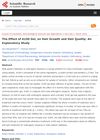 January 2016 in “Journal of Cosmetics, Dermatological Sciences and Applications”
January 2016 in “Journal of Cosmetics, Dermatological Sciences and Applications” A100 gel may increase hair growth without side effects, but more research is needed.
May 2015 in “Cancer research” After chemotherapy for early breast cancer, 33.4% of patients had long-term significant hair loss, with some hair regrowth over time, but treatments for hair loss were largely ineffective.
April 2012 in “Journal of evolution of medical and dental sciences” No effective treatment exists to stimulate hair growth in atrichia with papular lesions.

Some supplements may help reduce side effects of cancer treatments in pets.
 January 1983 in “Journal of The American Academy of Dermatology”
January 1983 in “Journal of The American Academy of Dermatology” The book is a valuable resource for understanding hair and scalp problems but could be updated with more information on certain conditions.
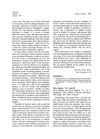 January 1983 in “Journal of The American Academy of Dermatology”
January 1983 in “Journal of The American Academy of Dermatology” The document suggests improvements for a hair and scalp disease book and recommends a two-volume skin surgery reference for dermatologists.
 6 citations,
December 2022 in “Colloids and Surfaces B: Biointerfaces”
6 citations,
December 2022 in “Colloids and Surfaces B: Biointerfaces” The new wound dressing promotes cell growth and healing, absorbs wound fluids well, and is biocompatible.
4 citations,
April 2018 in “The journal of pediatrics/The Journal of pediatrics” A 6-year-old girl's inability to grow her hair long was due to Loose Anagen Hair Syndrome, which causes hair to shed easily and may improve with age.
 November 2024 in “Skin Appendage Disorders”
November 2024 in “Skin Appendage Disorders” Misinformation about alopecia can lead to poor treatment, so it's important for healthcare professionals to correct myths.
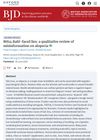 June 2024 in “British Journal of Dermatology”
June 2024 in “British Journal of Dermatology” Misinformation about alopecia is common online and can harm patient choices.
7 citations,
July 2021 in “PubMed” Vitamins A, B, C, and D are important for skin health and are being explored for new uses, but more research is needed to confirm their effectiveness.
 September 2024 in “Journal of the American Academy of Dermatology”
September 2024 in “Journal of the American Academy of Dermatology” Dietary changes and supplements mostly did not improve alopecia areata.
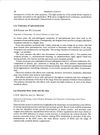 1 citations,
June 1987 in “British journal of dermatology/British journal of dermatology, Supplement”
1 citations,
June 1987 in “British journal of dermatology/British journal of dermatology, Supplement” Most patients tolerated spironolactone for acne and hirsutism despite common side effects like menstrual changes and breast tenderness.
 November 2015 in “Springer eBooks”
November 2015 in “Springer eBooks” Hair loss treated with minoxidil, finasteride, laser/light, hair transplant, and scalp prostheses; more research needed for skin of color.
 18 citations,
April 2019 in “Archives of Dermatological Research”
18 citations,
April 2019 in “Archives of Dermatological Research” Lactoferrin helps mice grow hair by increasing cell growth and hair follicle development.
 13 citations,
April 1994 in “Journal of Investigative Dermatology”
13 citations,
April 1994 in “Journal of Investigative Dermatology” Androgen receptors found in monkey scalps, similar to humans, affect hair growth.
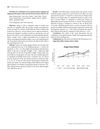 1 citations,
June 2019 in “Current developments in nutrition”
1 citations,
June 2019 in “Current developments in nutrition” A combination of arginine silicate complex and magnesium biotinate improves hair and nail growth in rats.
 January 2015 in “Elsevier eBooks”
January 2015 in “Elsevier eBooks” Nanocarriers like liposomes and cyclodextrins improve how angiotensin-(1-7) is delivered in the body.
 June 1989 in “Diseases of the Colon & Rectum”
June 1989 in “Diseases of the Colon & Rectum” Some patients experience temporary hair loss after ulcerative colitis surgery, likely due to illness rather than the surgery itself, and it usually grows back within six months.

















